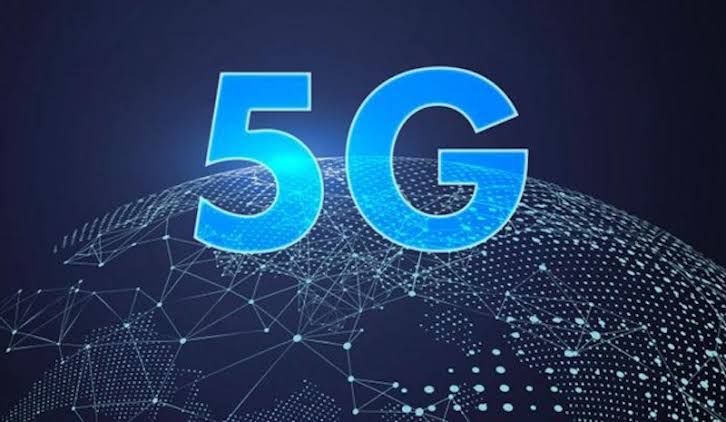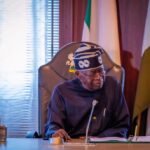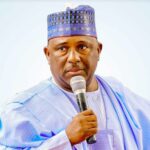Fast data depletion, bad quality of service (QoS), slow 5G penetration and infrastructure deficit hampered Nigeria’s telecom sector growth in 2023.
Nigeria’s harsh economy during this outgoing year was felt thoroughly by telecom operators as they discreetly adjusted their service offerings to their customers. The rising operating costs due to the struggling economy in 2023 forced the country’s telcos to reduce the value of data they sell to their customers.
Though the telcos did not announce the increment officially despite a 43 % rise in cost of doing business in the industry, the big four operators slashed the value of their data going by the pace with which data subscription depleted fast, according to their customers.
Daily Trust had gathered that a N2000 data bundle by an average internet user got depleted within three to five days. This could last to between three weeks and four weeks before the economy went into the struggling mode.
FG calls for adoption of climate resilient techniques
Mixed Reactions As FG Workers Observe Christmas Without December Salaries
Complaints by data users of data depletion became common on various platforms on social media and even offline during this outgoing year.
Bilal Miftahudeen, a lawyer, told Daily Trust that before the rising costs of goods and services became a daily affair, he used to subscribe to an operator’s N2000 data bundle and that would take him close to one month even with heavy download of documents. “But as soon as the present administration came in and the dollar kept moving up against the naira, I noticed that my N2000 subscription now last me for four to five days”, Miftahudeen had said.
The Lagos based legal practitioner said many of his colleagues had similar complaints and called on the federal government to do something to address the issue.
Similarly, Adebola Jacob, a trader, said he had decided to suspend data subscription for now as it is eating deep into his earnings. “I only subscribe when I have urgent and very important thing to do online, things that would fetch more than the money I put into the subscription”, Jacob told Daily Trust.
Many other data users also had the same story about fast data depletion. Though they said the economy might have forced the telcos to reduce data value, they appealed to the government to address the issue.
Daily Trust reports that data depletion occurs when a subscriber exhausts his or her data bundle before the expiration date or when more than volume is utilised for accessing online content greater than what the subscriber believes it should be or what it ought to be.
But the Nigerian Communications Commission (NCC) said there were many factors responsible for fast data depletion. These, according to NCC, include the increase in internet speed due to migration to 4G and 5G, which automatically plays video in high-quality formats, thus consuming more data.
Non-technical factors: NCC said data is being depleted by other factors, which are non-technical and these include:
The low purchasing power of subscribers leads to the purchase of small bundle sizes with short periods of use leading to an increased frequency of data depletion complaints.
Growth of social media, online advertisements and default audio-visual activations in web browsers and apps.
Lack of consumer awareness and education and use of sub-standard and fake subscriber devices.
However, many of the telcos’ customers also complained of bad quality of service during the outgoing year. This made NCC to warn the operators to sit tight or get the stick in 2024. The commission said it would be stricter on monitoring of quality of services being offered by the big four telecommunications operators in the country from January, next year.
NCC’s CEO and Executive Vice Chairman, Dr Aminu Maida revealed this when he held a meeting with Nigerian Information Technology Reporters Association (NITRA) in Abuja.
“We are going to be driving very hard on that (Quality of Service), as one of the areas that we should be held responsible; we will make sure it is transparent. I want it to be transparent so that we can drive the industry”, Maida said.
According to the executive vice chairman, NCC would embark on compliance drive next year to make sure “that we are working on the things that will help the licensees , MNOs and other stakeholders in the value chain.”
He added that the commission would hold mobile networks operators (MNOs) accountable “because what you do not measure you do not hold people accountable on”.
However, he said, in a collaborative fashion, NCC would sit down with the operators and look at the challenges “and know what we can do together”, adding “I do not intend to use horsewhip”.
He said: “And of course, quality of experience matters, in my engagement with the CEOs of telcos, I had to let them know that we need to make sure people, everybody, get value for their money. There are challenges everywhere, whether it is EFEX, diesel, security; but because of the criticality of the telecoms infrastructure we must not fold our hands.”
At the end of January, he said, NCC would be releasing new strategic plan for the industry and country’s telecom sector.
He said Nigeria’s broadband penetration drive is complicated, interrelated system of components that have to come together in harmony for the industry to move forward.
However,zrs, we are going to do everything to increase the kilometers of fiber optic cables in Nigeria. We are about 35, 000 kilometers away, and we need to go to 95,000 kilometers, almost half way there.
“It’s going to cost roughly $1.5 to $2 billion dollars to wire the whole of Nigeria to reach that 95, 000km.
“We hope we can accelerate in the next 6 to 12 months, secure that funding that private companies can tap into—it’s not government money—and hopefully work with serious companies that can lay fiber over the next two to three years.
“We’re hoping that before the first four years of this administration, a significant portion of that 95, 000 kilometers will be covered,” he said.
But the National Agency For Science and Engineering Infrastructure (NASENI) signed the agreements for the implementation of Delta- 2 Projects worth $21.7million with 11 companies under the Nigeria-Czech bilateral cooperation.
Speaking after signing the agreement in Abuja, the executive Vice Chairman and Chief Executive of NASENI, Mr Khalil Suleiman Halilu, stated that Delta-2 project was a very important project because the first letter he got from the president is to give update and way forward on the programme.
“Of the $21.7m set aside to finance the selected projects, Technology Agency of Czech Republic (TACR) is contributing $11.7m dollars while NASENI is contributing $10m”, Halilu told newsmen in Abuja after the signing.
The NASENI boss noted that the calls for submission of applications went out and a very robust screening process took place between 2002 and 2003, with the emergency of 11 projects that would be funded in the first face of the programme, full details of beneficiaries of the projects and funding arrangements will come from the chairman of the Presidential Implementation Committee (PIC), on the technology transfer, Dr Mohammed Dahiru.
Many startups got FG fund for research
The Nigerian Communications Commission (NCC) awarded millions naira to many startups to enhance their research in order to develop the country’s economy.
The startups were awarded at the grand finale of the three- day 2023 Talent Hunt Research through Hackathon, organised by the NCC..
The Executive Commissioner of Technical Services, NCC, Ubale Maska said the Commission had actively promoted hackathon competitions with thematic focus aimed at addressing significant challenges within telecom industries and society as a whole.
Represented by NCC’s Director of Research and Development, Ismail Adedigba, Maska said hackathons had yielded innovative solutions for issues such as kidnapping and banditry, E-waste management, and strategies to mitigate COVID-19 pandemic.
Meanwhile, Airtel Africa during the year launched Airtel (“Nxtra”), a new data centre business founded on a commitment to meet the continent’s growing needs for data centre capacity and to serve the fast-growing African digital economy.
The first major Nxtra facility in Lagos, will deliver 34 MW of total power, the telecom company said in a statement.
Nigeria signs unto updated global radio regulations
And just as the year was winding down, Nigeria joined the rest of the World to sign unto the Final Act World Radiocommunications Congress(WRC-23).
The WRC-23 constitutes a record of the decisions taken at the just concluded World Radiocommunications Conference (WRC) 2023 which took place at Dubai, United Arab Emirates (UAE).
The Final Act comprises both the new and revised provisions of the Radio Regulations, an international treaty governing the use of the radio-frequency spectrum and satellite orbits.

 Join Daily Trust WhatsApp Community For Quick Access To News and Happenings Around You.
Join Daily Trust WhatsApp Community For Quick Access To News and Happenings Around You.


